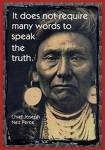
This book documents a grand, year-long experiment: novelist/essayist Kingsolver and her family endeavor to become as self-sustaining as possible, raising their own food and eating locally. Animal, Vegetable, Miracle, however, on a deeper level, is no mere Slow Food treatise, but about the family's search to forge greater connection to the earth and discover a true sense of place. Kingsolver's style is by turns, chatty, impassioned, and humorous, although a fellow English Department colleague and I both felt the book was arguably marred by self-righteousness. While Animal, Vegetable, Miracle makes an excellent companion volume to Pollan's The Omnivore's Dilemma, it lacks Omnivore's narrative cohesion, due to its joint authorship. Kingsolver's husband, scientist and professor, Steven Hopp, contributes factual sidebar information detailing key issues in the text, e.g. CAFOs (confined animal feeding operations), the merits of organic vs. industrial farming, and genetic diversity, while Kingsolver's daughter, Camille, provides a collegiate perspective on the family experiment, along with several recipes. While the multiple authorship sometimes results in a disjointed meshing of styles, it doesn't diminish the many wonderful moments in this book, including the family vainly trying to stem their summer zucchini infestation (chocolate chip zucchini cookies, anyone?); the younger daughter, Lily, becoming a proud organic chicken/egg entrepreneur; mother and daughter witnessing the miracle of birth, as the first of their turkey flock enters the world. All in all, a good read, and a definite recommendation for Kingsolver's fans.



